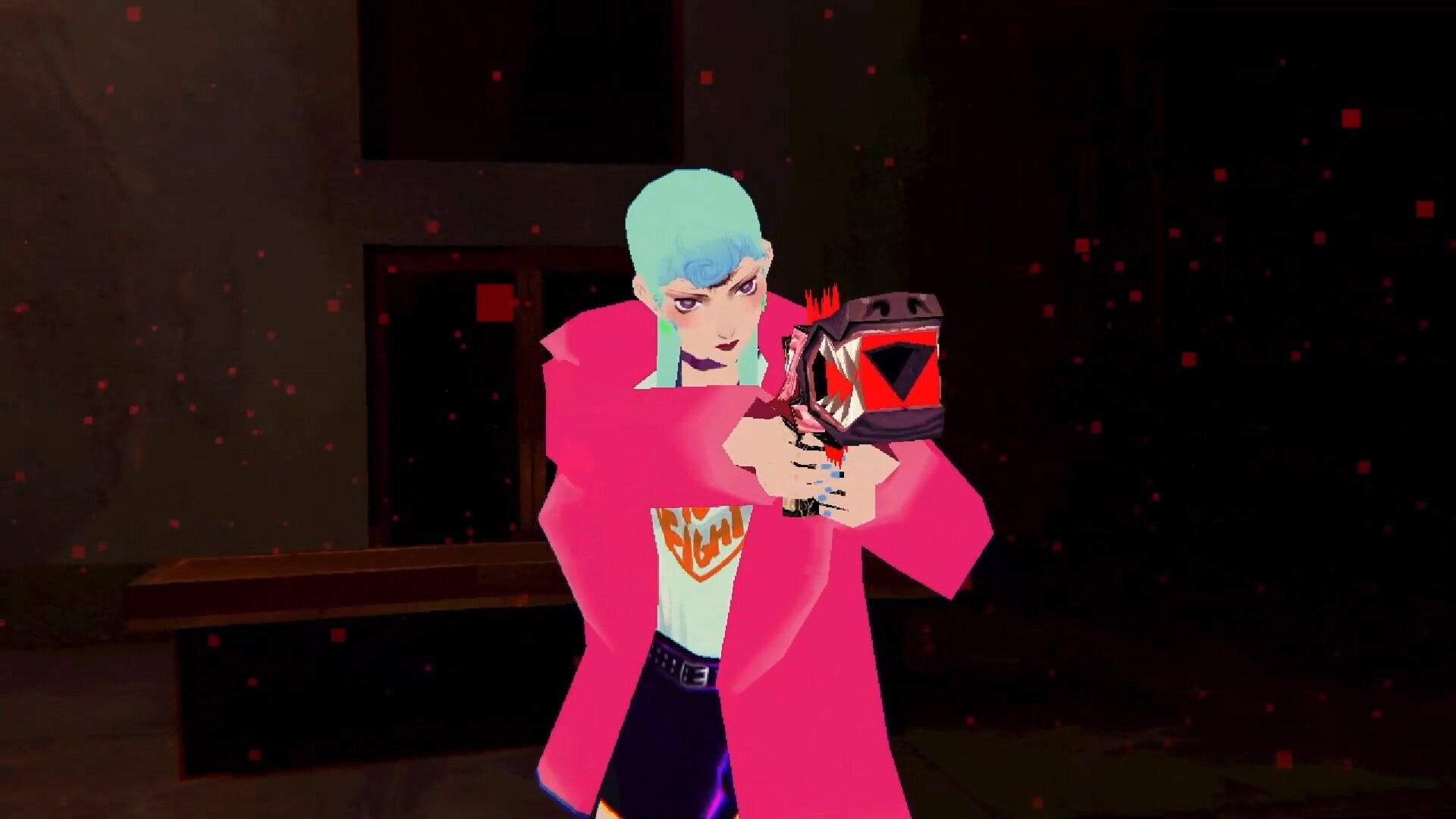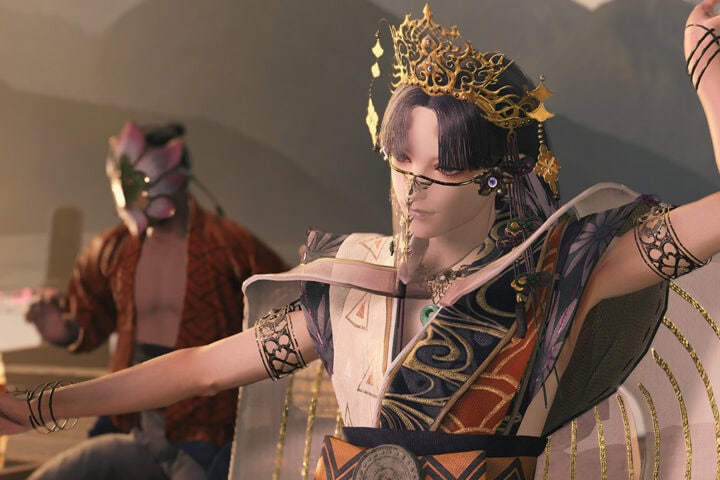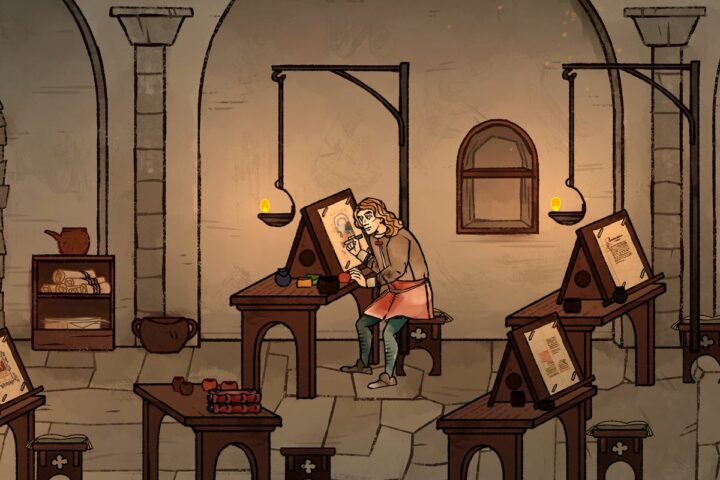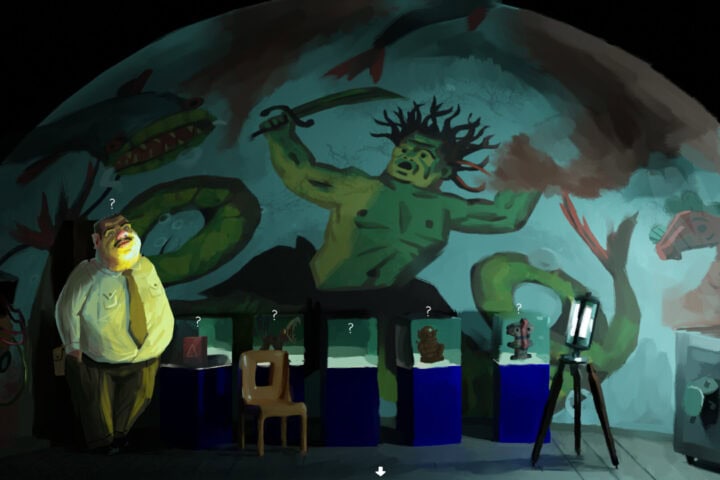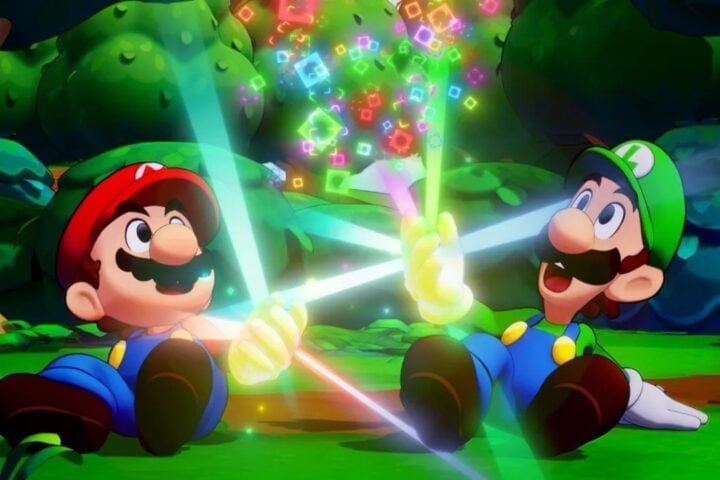One look at Sorry We’re Closed’s protagonist tells you that this is a game with style. Michelle moves through her dead-end corner of London in a hot-pink coat, standing out against the dingiest backdrops of this survival horror game. Her shoulder-length hair is teal, with a small tuft hanging down into her face just above the spot on her forehead where her third eye opens. The eye is a new addition to her ensemble, a curse bestowed by the Duchess, the statuesque demon who enters Michelle’s bedroom one night and demands eternal love.
In this elegant, ultra-cool debut from developer à la mode games, the player guides Michelle through the precious few days she has before the Duchess ensnares her forever. More than just a symbol of the Duchess’s hold on her, the third eye reveals another reality within a small area around Michelle. Within the circle, see-through apparitions take on corporeal forms and other entities show their true selves, as in Michelle’s longtime friend Robyn sprouting hooves and horns. And in the dungeons of the demon realm where Michelle seeks to put an end to her curse, her third eye can reveal the vulnerable heart of each chittering, wheezing horror in her way.
Aiming a weapon switches from the fixed third-person camera to an immobile first-person POV, forcing you to spend precious moments reorienting yourself while the enemies close in. And because Michelle’s third eye only works within a small radius, the monsters are nearly within striking distance by the time their hearts are revealed. The demons are briefly stunned when you open your third eye or hit them in their weak points, but some have four or five hearts that must be shot in quick succession, since they start moving if you take too long to aim, or if you miss.
Up to a point, the game’s combat system is tense and disorienting. But the enemy encounters toward the end of Sorry We’re Closed grow tedious, designed as they are around overwhelming numbers of foes that require you to repeatedly break away from the horde to give yourself some distance only to wait for the baddies to close it again. The creatures all behave too similarly to support any meaningful strategizing, and ignoring weak points to shoot from a longer, safer distance rarely feels viable because you can barely tell how much damage you’re doing.
There are a few clever puzzles, but this is very much a game carried—and quite capably so—by its storytelling and visual flair. The journeys into dungeons are broken up by the player getting to know the charming set of oddballs on Michelle’s street, like a dirtbag bar owner or an excitable record store clerk obsessed with demonology. There’s a lot of rumination on what constitutes “love” and what behaviors are a natural expression of it, which manifests in some thoughtful and surprisingly thorny decisions to be made on the way toward one of four endings.
From the gorgeously painted dialogue portraits to the bold colors popping against dark backdrops, the game is a visual marvel. Beyond the memorable human designs like Michelle herself, Sorry We’re Closed revels in one imaginatively macabre design after another. The Dream Eater resembles a crow’s head mixed with an engorged slug, dragging a tangle of limbs across the ground. One angel has a skull for a face that’s perpetually obscured by a black butterfly, while a character named Cerberus takes the form of three dog-headed men in suits. Even Michelle’s pistol is distinctive for the way its lined with teeth and growls after each reload.
Beyond familiar echoes to Silent Hill, Killer 7 is the most obvious touchstone for the combat system and generally flamboyant aesthetic. But Sorry We’re Closed defies the purely imitative qualities of so much indie horror. For whatever mechanical shortcomings it may have, the game exhibits the most confident grasp of its own artistic sensibility this side of Paradise Killer.
This game was reviewed with a code provided by Strange Signals.
Since 2001, we've brought you uncompromising, candid takes on the world of film, music, television, video games, theater, and more. Independently owned and operated publications like Slant have been hit hard in recent years, but we’re committed to keeping our content free and accessible—meaning no paywalls or fees.
If you like what we do, please consider subscribing to our Patreon or making a donation.

